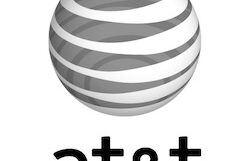HOLIDAY SCAM ALERTS!
As the holiday season picks up so do the efforts scammers put into ripping you off. I have said many time “Holiday season is scam season.” You need to be aware and alert to the clever ways cyber criminals are thinking up to rob you. Here are few scams you need to be aware of.
Amazon and Apple Phone Scams
I don’t need to tell you that no one is busier this Christmas than Amazon and Santa Claus. Add Apple to the mix and you have pretty potent scam.
Let me get straight to how this scam works. Amazon and Apple are not, repeat, ARE NOT!, calling you. The callers are pretending to be from either of theses companies and will try to convince you that there is some suspicious activity happening on your account. The caller will ask for personal information such as a password or credit card number.
The scammer will make reference to an $800 charge on your account but there are actually two forms of the scam.
Scenario one has you receiving a recorded message claiming to be from Amazon. The recording will claim to be following up on an issue with the recipient’s account, such as a suspicious purchase or a lost package.
In the second scenario the recording will claim that suspicious activity on your Apple iCloud account indicated the account had been “breached.” Both recordings will ask the victim to press “1” to speak with someone or call the provided phone number. DON’T DO IT!
“It’s a scam. They’re trying to steal your personal information, like your account password or your credit card number,” wrote the FTC, adding that a person should not engage with the caller and avoid pressing 1 or calling a phone number provided. Most importantly, never give out personal information.
If you believe there is an issue with your account call the company directly using only contact information provided on its official website. And remember that websites can be replicated so pay attention to the web address.
For Amazon customers you can find more information about how to determine whether a communication is coming directly from Amazon by visiting this link, as well as contact the company here. Contact information for Apple iCloud can be found here.
If you believe a scammer is targeting you you should report it to officials at ReportFraud.ftc.gov and the BBB Scam Tracker.
And here are a few recommendations from the Better Business Bureau.
- Be skeptical of unsolicited calls. Amazon will never ask a customer to verify or disclose sensitive personal information or offer an unexpected refund. A representative will never ask that payment be made outside of the website nor will they ask for remote access to a device.
- Ignore unsolicited messages that ask for personal or sensitive information.
- Ignore calls that require immediate action.
- Beware of any requests for funds via wire transfer, a prepaid debit card, or other third-party apps.
Fake Zoom Meeting Phishing Scam
Everybody is working from home and everybody is doing the Zoom meeting thing. And so are the scammers. So how does it work?
A scammer sends you an unsolicited email, text, or social media message branded with a Zoom logo. The scammer’s message will say that “your Zoom account has been suspended, click here to reactivate,” or “please activate your account,” or “you missed a meeting, click here to see the details and reschedule.” A little bit of information for you, 93 percent of malware infections start with an email that includes links or attachments.
Now with that being said, these phony invites include links that, when clicked, either download malware directly onto your computer or take you to a fake Zoom login page. This fake login page will trick users into entering their email and Zoom password. Now the scammers have control over your account. But this scam is especially dangerous for one reason in particular, 53 percent of people reuse the same password across multiple accounts. Scammers can now try to use your email and password combination to log into your other accounts, services or platforms.
If you receive unsolicited email, text messages with links or attachments, DO NOT CLICK on them!
Here is what the BBB recommends;
- Double check the sender’s information. Zoom.com and Zoom.us are the only official domains for Zoom. If an email comes from a similar looking domain that doesn’t quite match the official domain name, it’s probably a scam.
- Never click on links in unsolicited emails. Phishing scams always involve getting an unsuspecting individual to click on a link or file sent in an email that will download dangerous malware onto their computer. If you get an unsolicited email and you aren’t sure who it really came from, never click on any links, files, or images it may contain.
- Resolve issues directly. If you receive an email stating there is a problem with your account and you aren’t sure if it is legitimate, contact the company directly. Go to the official website by typing the name in your browser and find the “Contact Support” feature to get help.
You may receive a message from anybody on any platform you use. That includes email, text messages, Facebook, Instagram, WhatsApp, wherever. Scammers are coming at you from all direction. This is their time of year. Please be extra vigilant. Protect your holidays.
Now you know.






